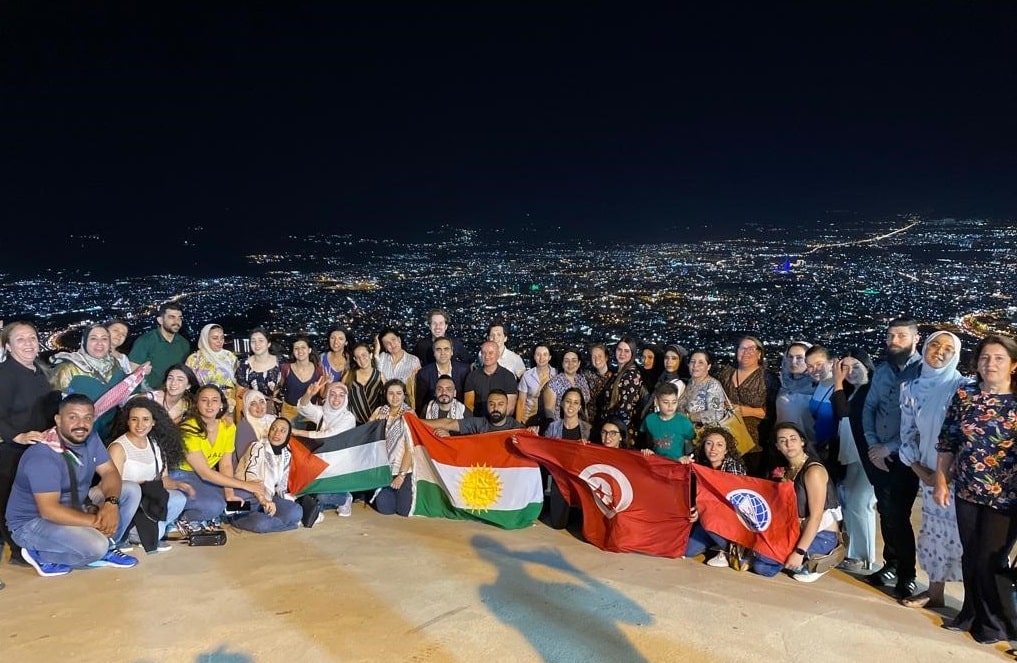During 2-5 June, the fourth edition of the MENA (Middle East & North Africa) Academy and first edition of the MENA Women Academy took place in Sulaymaniyah, Kurdistan Autonomous Region (KRG), Iraq. For four days, 45 participants from Tunisia, Jordan, the Palestinian Territories, Lebanon and the KRG, Iraq were trained on a variety of topical political issues and skills.
Workshops for young people
Only young people participated in the MENA Academy. Here, the focus was on training skills such as political leadership, political campaigning, social democracy and internal party democracy.
These young people represent a new generation in the dynamic MENA, where great challenges require good political leadership. These participants regularly find themselves in a political climate where autocratic tendencies prevail, and it is difficult to democratically influence political decision-making. Such as in Tunisia, where the current president Kais Saied flouts all constitutional laws, thus strongly threatening the young democracy in the country since the Arab Spring.
The regional scale of this training creates an interesting dynamic in which participants from different countries learn about each other's organisations, countries and political systems. They are the vanguard of a new social democratic political generation in the region.
MENA Women Academy
The first edition of the MENA Women Academy also took place on these dates. We proudly brought together a variety of women political activists from MENA for various political training sessions. They formed a special mix of experienced women activists and young, eager-to-learn participants - a very interesting learning opportunity for a new, strong generation of women political leaders in MENA.
There is much to be gained in this area - in most countries, aging men predominate in politics. Whereas countries like Jordan keep the number of women in politics at a certain level through quotas, it is important that a strong generation of women can bring about democratic change in the region on their own.
Sulaymaniyah, Kurdistan
The participants and organisers were received with great hospitality in Sulaymaniyah. This city of 800,000 inhabitants, surrounded by a mountainous landscape, provided a special setting for this regional training. The city has hosted many refugees in recent years following the IS crisis, and is facing an economic crisis due to a dispute with the federal Baghdad government over oil revenues. Despite this, Sulaymaniyah is currently one of Iraq's more free and prosperous cities.
Nevertheless, many improvements are still possible. Political opposition is harshly repressed, as in 2021 during large student protests in Sulaymaniyah. Also, migration from the region is still very high because of the region's economic problems.
In addition, the city has a dark history, due to gross crimes against humanity by Saddam Hussein's Ba'ath regime against the Kurdish population in the 1980s and 1990s. This reality comes close at the city's Amna Suraka museum - the former prison of Hussein's secret service. Or an hour's drive away in Halabja, where there was a terrible poison gas attack on the local Kurdish population. 5,000 people were killed in the process. This is a cynical warning of the ultimate price of autocracy, one-party systems and the glorification of autocrats. This history makes the importance of the MENA (Women) Academy all the more topical.
The impressive monument at Halabja
We organise these training sessions together with the Olof Palme International Center.





